By Julia Kim, MCC Public Relations Intern
Being one of only 20 community colleges nominated across the country, McLennan Community College has been recognized, for the fifth time, as a shining example of inclusivity and excellence in education. Categorized as one of the 2023 Most Promising Places to Work in Community Colleges by the National Institute for Staff and Organizational Development (NISOD), MCC stands as a beacon of the Waco community.
This nomination reaffirms MCC’s dedication to providing an inclusive learning and working environment. The college’s commitment to diversity is reflected in its student and staff recruitment and retention practices, inclusive learning environments, meaningful community service and engagement opportunities. These practices ensure that students and faculty not only feel welcomed but valued.
“At MCC, teachers not only have a passion for our craft or field of study, but we work with a common denominator of the success of our students,” Mandy Morrison, Associate Professor of Music, said. “That commonality is the driving factor in all of our decisions.”
MCC’s impact extends far beyond the campus walls. It plays a vital role in the Waco community, offering education and opportunities that transform lives. MCC extends a helping hand to the community through its outreach efforts like the Highlanders for Community program. This program allows opportunities for students to volunteer and become more involved in the Waco area. The college also offers work-study opportunities for students so they can learn about different job environments.
“I have always experienced a friendly community at MCC as a student and employee,” second-year student, Alex Flores said. “Working at the college as a student has helped prepare me for the jobs I would like to have in the future.”
With this latest accolade, McLennan Community College reaffirms its status as an example of inclusivity, diversity and excellence, leaving a mark on the hearts and minds of students, staff and the Waco community.
McLennan Community College Hosts Annual Trunk or Treat Event
As the temperature cools and autumn leaves paint the campus, McLennan Community College is gearing up for an event that promises fun, laughter. and a sense of community. From 5-6:30 p.m. on Oct. 31, McLennan Athletics will host their “Trunk or Treat” event, bringing together students, faculty, and the Waco community for a safe and enjoyable Halloween celebration.
The event will be held in Parking Lot outside The Highlands gym, on the MCC campus. It will feature trunks decorated by MCC students, faculty and staff members, and numerous student groups. Local food trucks will also be on hand for those with an appetite for something other than candy.
“We are thrilled to host our annual Trunk or Treat,” Sports Information Specialist Candice Kelm said. “This event is a fantastic opportunity to embrace the Halloween spirit and foster a sense of togetherness among our diverse community.”
Attendees are encouraged to continue the fun at McLennan Madness beginning at 7 p.m. inside the gym. The pep-rally style event will include player introductions, special performances, fan costume contests, giveaways and more for attendees as MCC prepares for the start of basketball season Nov. 1.
Admission is free, and all are welcome to attend both events. For more information, email [email protected].
By: Hope Middlebrook
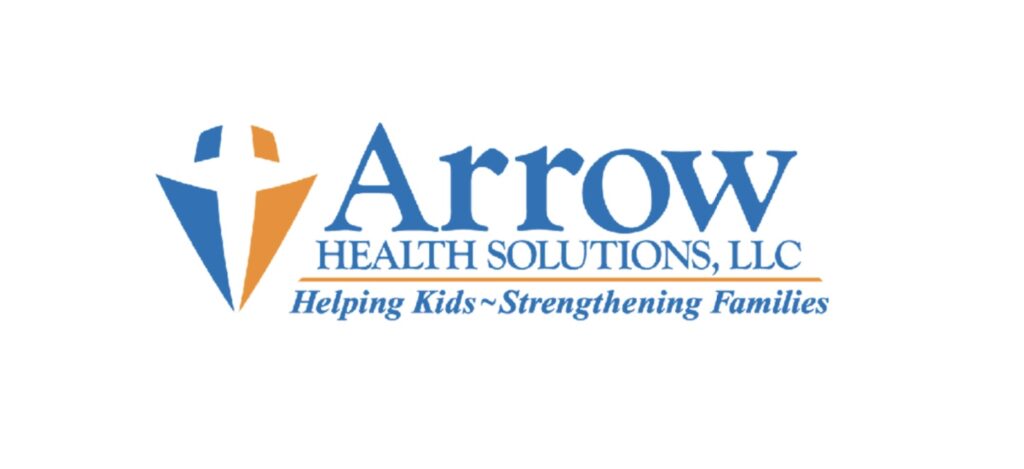
There is always something exciting going on in the foster care world! And fall is especially busy. If you’ve been wanting to get plugged in, now is the time to hop in!
Arrow is a child-placement agency for foster kids. In McLennan County alone, there are around 800 children in the foster system. When there are not enough homes for them, they are referred to as a CWOP (child without placement) and are often housed in CPS conference rooms or hotel rooms. Here at Arrow, we believe the best place for a child to grow up is in a family. We work each day to make sure that every foster child is placed in a loving and healthy home, one where they can grow and heal!
Does this sound like something you might want to know more about? Join us for our next Orientation, this October 26th at 6 pm. This low commitment Zoom class will tell you everything you need to know about foster care and Arrow.
Need more information first? Arrow Child and Family is pleased to announce we will be partnering with Nightlight Christian Adoptions for a monthly book club. Our kickoff meetup is at 1 pm on October 23rd at Glory Bell Coffee. We will be discussing the first half of Foster the Family.
Additionally, Waco’s Families and Foster Care Coalition will be hosting a multi-agency informational meeting on November 2nd. We would love to see you there!
It’s a great time to learn more about foster care! Contact Hope Middlebrook at [email protected] to learn about how to get involved. Whether you want to be a foster parent or get more information on how to donate to the kids in our community, we can all do something!
ABOUT
Arrow Child and Family Ministries is a child-placement agency committed to finding quality, loving homes for foster children. They were established in 1993 and have been a leader in the field ever since.
Be sure to tune in to the “Act Locally Waco” podcast! In their latest episode, they delve into the state of foster care in the city of Waco, shedding light on crucial insights and discussing ways you can make a positive impact. For a full and informative interview on Waco’s foster care system, featuring Hope Middlebrook from Arrow Child & Family Ministries, check out the podcast here! It’s an excellent resource to learn more about this important community initiative.
SOCIALS
Facebook:
https://www.facebook.com/arrowcfm https://www.facebook.com/groups/ArrowWaco
Instagram: https://www.instagram.com/arrowcfm/?hl=en Website: https://www.arrow.org/
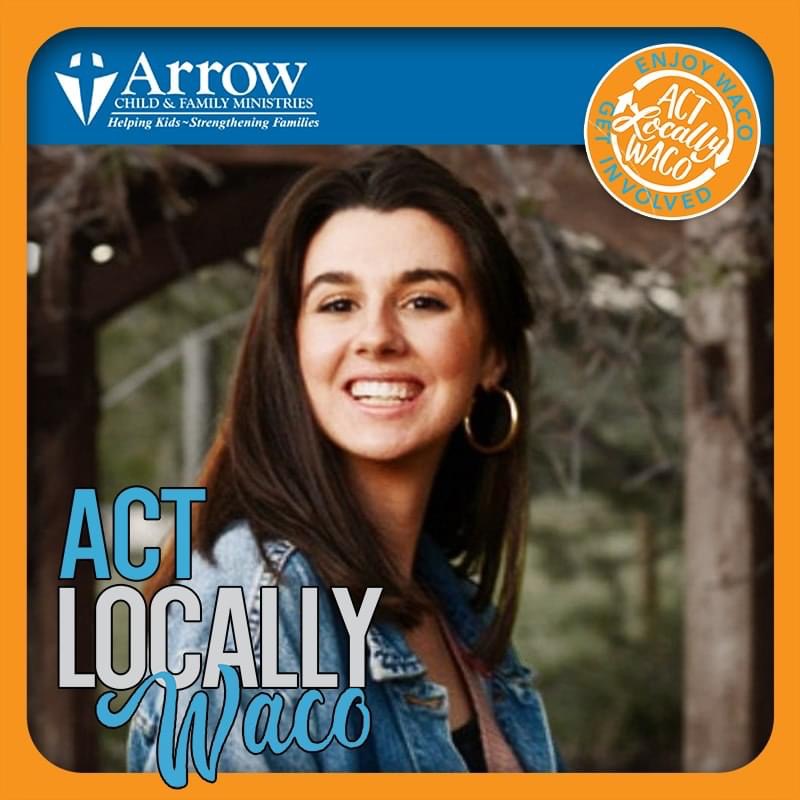
On Sept. 15, RSVP AmeriCorps Seniors is hosting its 31st annual Senior Source Health & Information Fair. This fair will be open from 10 a.m. to 2:30 p.m. at the Richland Mall in Waco, TX, and will give seniors opportunities to learn about and take action for their personal health.
This year, RSVP AmeriCorps Seniors will offer multiple free health screenings to participants, alongside free flu shots and COVID-19 immunizations with I.D. and either Medicare or an insurance card. At the fair, other exhibitors will share up-to-date information for senior adults, caregivers, and the general public about their personal health.
The Health & Information Fair currently has open tables for new exhibitors. If interested in exhibiting at the fair or for general questions, contact RSVP AmeriCorps Seniors at (254) 299-8766 or visit https://americorps.gov/.
Participants at the fair are responsible for medical advice and screening administered at the event and should consult with a physician for further evaluation.
The Waco Symphony Orchestra’s 2023-2024 performance season theme is Out of this World and is a concert series that is truly something otherworldly. The performances will showcase composers and pieces from around the world and feature several notable guests. The season will end just before Waco becomes a hot spot to view the total solar eclipse next April.
“The Waco Symphony Orchestra has been a star of the Central Texas performing arts scene since 1962, and it’s all because of your unwavering support… get ready for blastoff, whether you’re renewing your season subscriptions or joining us for the first time!” said Carolyn Bess, Executive Director of the Waco Symphony Orchestra.
The season takes off on October 5 with “Breaking Boundaries” which features music from Dmitri Shostakovich’s Symphony No. 5. Conductor Lawrence Loh said that the pieces chosen for this performance are “the epitome of the ability of music to take the listener out of the world in which they live”.
The next performance “Larger than Life” will be on November 16 and will feature music from Johannes Brahms Symphony No. 4, conducted by David Itkin. A special feature of this performance is the narration of the poem that inspired the second piece, “Don Juan”.
The third performance “Extraordinary Feats” takes off with a jaw-dropping 30,000 note piano solo by the 2022 International Piano Competition Silver Medalist Anna Geniushene and will be conducted by Emmy award-winning conductor Miguel Harth-Bedoya.
“Exploring the Great Unknown”, the fourth performance in the season, features a performance by the 2023 Grammy Award winning trio, Time for Three. The performance will be on March 21 and will pair music with an incredible visual of the cosmos.
On the eve of the Great American Eclipse, the WSO will perform music from some of your favorite Sci-Fi films such as “Star Wars”, “Star Trek” and “Interstellar”. The “Sci-Fi Spectacular: Sun, Moon, & Superstars” will be performed on April 7 and include insights from Emmy Award-winning journalist Gary Gogill.
By popular demand, the annual “The Nutcracker” performance has added an additional show. The two performances, taking place on December 9 and 10, will feature the WSO and the Ballet Frontier to bring a treasured holiday tradition to Waco.
Patrons can purchase season tickets for the Out of this World performance season or individual tickets to “The Nutcracker” or any other shows. Season tickets are sold in varying bundles with benefits such as parking passes, better seating, social events and after-concert receptions.
Season tickets for the Out of this World performance season and for “The Nutcracker” are on sale now and can be found here. Individual tickets for the Out of this World performance season will go on sale September 7 and can be found here.
###
About Waco Symphony Orchestra:
The Waco Symphony Orchestra has been a cornerstone of Waco music for over 45 years. The orchestra features a wide variety of world-renowned soloists and guest conductors during their performance season concerts. They also feature a variety of special performances such as “The Nutcracker”.
The WSO’s mission is to present live classical music that will enrich the cultural life of the Waco community. They believe that music serves as a source of beauty, conscience, humanity and tranquility, which are essential to the human spirit.
For more information, please visit their website.
On Monday afternoon, Waco Family Medicine (WFM) hosted “Flavor Feast,” a free lunch at the Meyer Center for community members experiencing homelessness. The event included a meal provided by Part Time Chef and a cooling station for attendees.
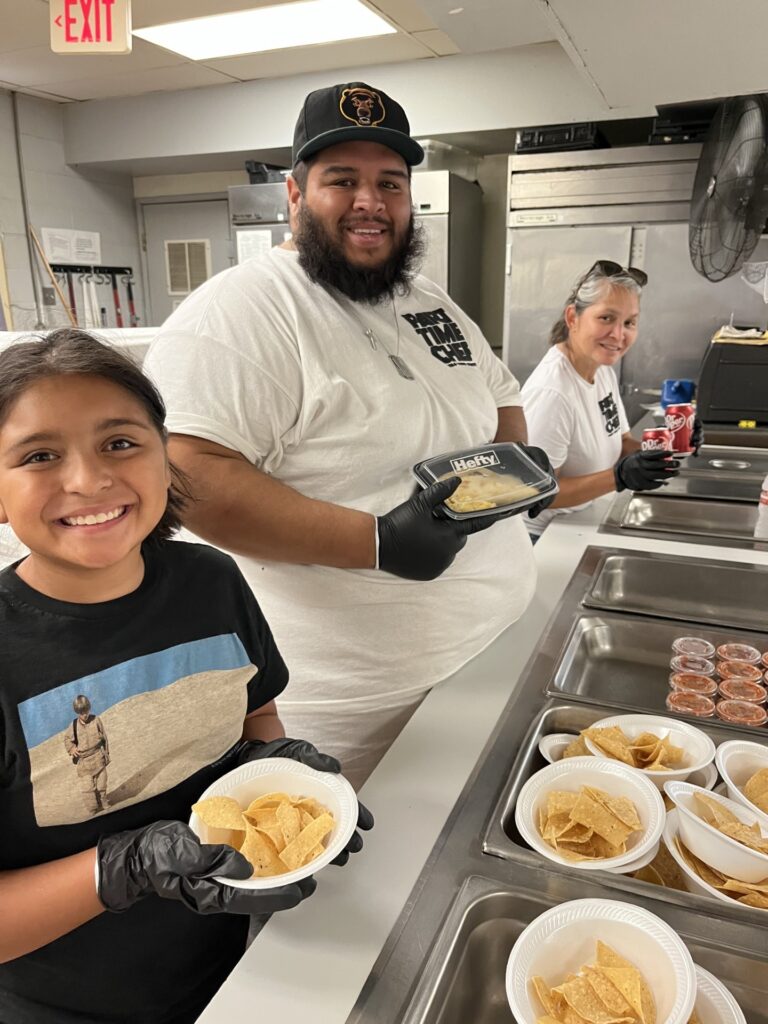
The event kicked off WFM’s recognition of National Health Center Week (NHCW). NHCW is an annual observance sponsored by the National Association of Community Health Centers (NACHC) running from Aug. 6 to 12. It aims to raise awareness and honor the contributions of Community Health Centers (CHCs) like WFM that provide comprehensive healthcare services to millions of patients across the U.S.
WFM’s NHCW programming includes People Experiencing Homelessness Day (Monday), Patient Appreciation Day (Wednesday), and Health Center Staff Appreciation Day (Friday). Patients and staff will be recognized with tokens of appreciation later in the week.
Each year for NHCW, WFM hosts Healthcare for People Experiencing Homelessness Day to highlight and expand the care provided to community members experiencing homelessness in Central Texas. People who experience homelessness endure higher rates of chronic and acute disease, behavioral health conditions, and other needs that are connected to poorer health outcomes, disability, and early death. Located downtown in the same building as Mission Waco’s Meyer Center, Waco Family Medicine – Meyer Center treats more patients experiencing homelessness than most other locations in the clinic system.
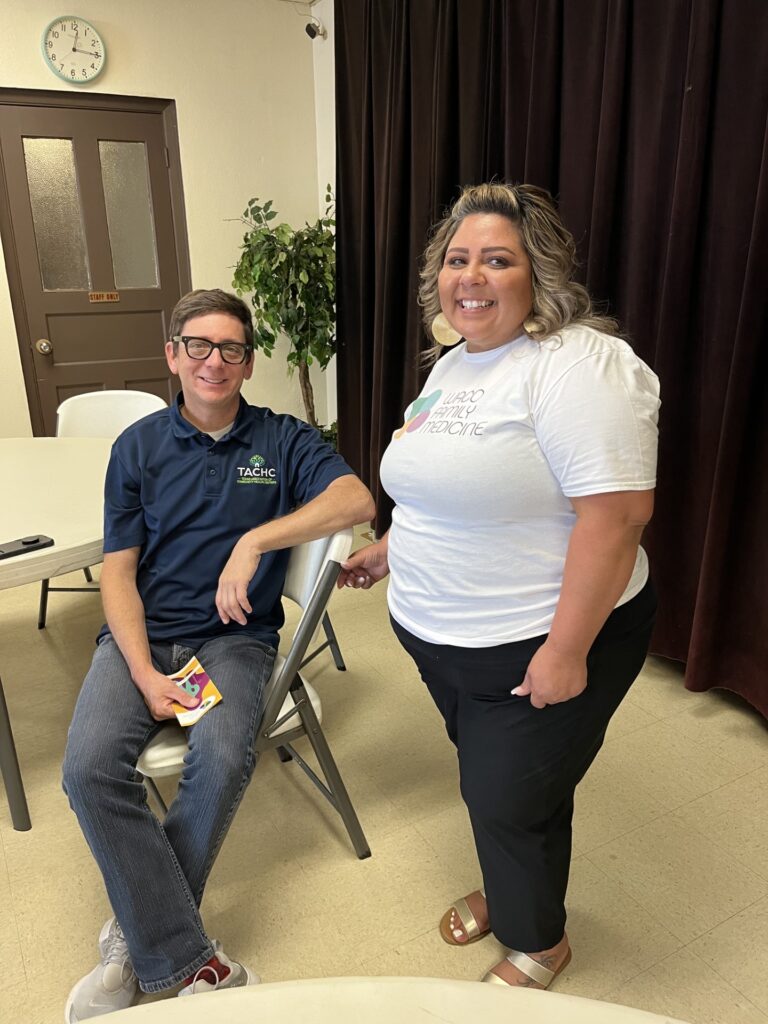
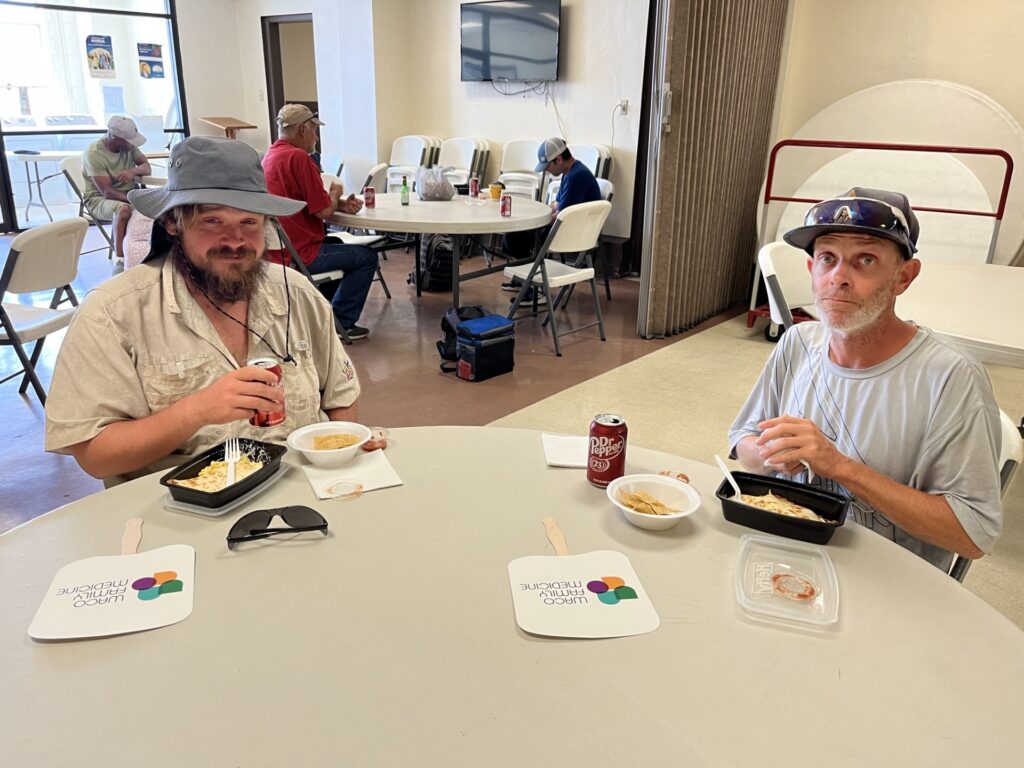
In 2022, WFM provided more than 61,000 patients with integrated medical, dental, and behavioral health care across 15 clinical sites. WFM addresses social and environmental barriers to wellness through innovative programs and community partnerships. Additionally, an in-house pharmacy provides quickly filled prescriptions to patients at a fraction of traditional costs.
With a quarter-million patient visits annually, the WFM system cares for one-fifth of McLennan County’s population. Ninety percent of county residents live within 10 miles of a WFM location, making care more accessible to patients, especially those with limited transportation. In 2021, about 74% of WFM patients identified as a racial or ethnic minority, and 22% were best served in a language other than English. The organization strives to provide high-quality, equitable care to meet the medical needs of Central Texans.
WFM invites community members, partners, and supporters to follow the organization on Facebook and Instagram (@wacofamilymedicine) to learn more about the social and economic contributions of CHCs throughout NHCW.
###
Waco Family Medicine is a Federally Qualified Health Center providing medical, dental, behavioral health, and community health care at 15 locations across McLennan and Bell counties. The nonprofit also provides graduate medical education through Waco Family Medicine – Institute and serves as a clinical training site for medical residency students, dental students, physician assistants, nurse practitioners, clinical social workers, pharmacy students, medical technicians, and allied health caregivers. WFM was established in 1970 to address a shortage of doctors, lack of access to primary healthcare, and economic development issues.
WHO: The Salvation Army Waco Corps, Local Waco Walmart locations, Waco HEB Stores

WHAT: The 2023 back-to-school campaign encourages shoppers to purchase and donate school supplies and other requested items at the Salvation Army collection bins at Walmart on Franklin and in Hewitt from August 4th to August 6th. Additionally, all Waco HEB stores will be collecting Back to School donations for school supplies, which will be purchased for distribution by The Salvation Army. The aim is to provide new school supplies to 300-500 students in the McLennan County community, ensuring they have the necessary materials for the upcoming school year.
WHY: The collaboration between The Salvation Army and local communities, along with supporters like HEB and Walmart, helps meet the needs of people and serves over 23 million Americans annually through social services, aiding communities in overcoming poverty and economic hardships. This joint effort ensures children in Waco and surrounding cities have the school supplies they need for academic success.
WHEN: School supply collections at Walmart will take place on August 4th, 5th, and 6th, 2023, from 10 am to 6 pm. The HEB Back to School Event will be ongoing throughout August, including curbside purchases.
WHERE: Live event at Walmart on Sun Valley in Hewitt, scheduled for August 5, 2023, from 10 am to 6 pm. Interviews and photo opportunities can be arranged upon request before the event.
McLennan Community College’s (MCC) Small Business Development Center, in partnership with Dallas College’s Goldman Sachs 10,000 Small Businesses, will host an engaging Small Business Networking Forum on July 25 from 10-11:30 a.m. at the MCC Conference Center, located at 4601 North 19th Street, Waco, Texas.
This forum offers small business owners a valuable opportunity to connect with resources dedicated to fostering success in their ventures. Participants will gain access to crucial information about the McLennan Community Investment Fund, Start-Up Waco, MCC’s Small Business Development Center, local Chamber of Commerce organizations, and various other small business advocacy groups.
A highlight of the forum will be a presentation from the Goldman Sachs 10,000 Small Businesses program, an investment program to support the growth and job creation of small businesses by offering education, capital, and business support services. Over 12,800 business owners from all 50 states including Washington, D.C., and Puerto Rico, have graduated from this program to date.
The Forum will conclude with networking and one-on-one meetings with small business resources and the Goldman Sachs 10,000 Small Businesses representatives.
Registration for this free event is at https://qrco.de/be7eIt. For more information, contact Dr. Frank Graves, Dean of Workforce & Public Service at MCC, at 254-299-8126 or[email protected].
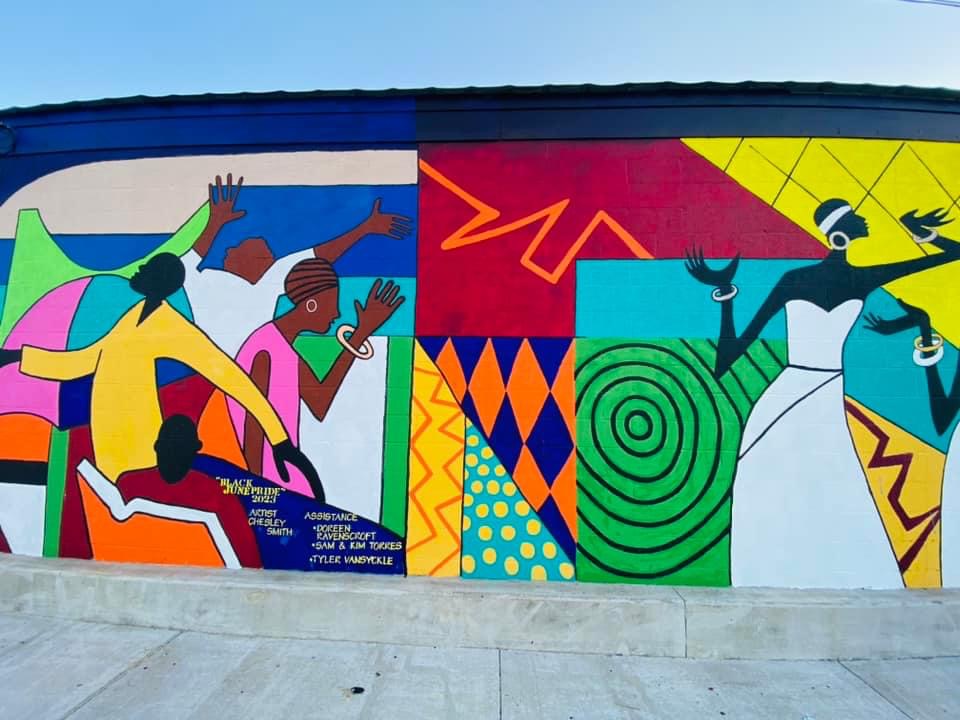
“Black Pride”
by Debbie Wright
Art has long been recognized as a potent medium for expressing emotions, stimulating dialogue, and challenging societal conventions. In recent times, the significance of representation in art has gained considerable acknowledgment due to its ability to amplify diverse voices, bridge divides, and foster a sense of belonging within communities. An exemplar of this principle can be found in Chesley Smith’s new mural project, proudly titled “Black Pride,” located on the wall of Marilyn’s Gift Gallery on Elm Ave in Waco, Texas.
When asked about his inspiration for the mural, Smith said, “My goal is to inspire the community to embrace their African American culture and celebrate their heritage.”

With 45 years of experience as an educator, including teaching art in both college and Waco public schools for 22 years, Smith brings a wealth of knowledge and passion to his artistic endeavors. Furthermore, he previously taught at Paul Quinn College, the oldest historically black college in Texas, which holds significant historical value as part of Waco’s legacy as the “Athens on the Brazos”. The mural project is particularly poignant as it also stands near the former location of the Paul Quinn College campus, situated at Eighth Street and Mary Avenue.
Smith has left his artistic imprint in other prominent Waco landmarks as well, such as the old Paul Quinn Johnson Hall and the historic Anheuser-Busch building on 10th and Webster Ave. Both structures are presently undergoing redevelopment, contributing to the city’s ongoing evolution.
Smith’s mural project on Elm Ave in Waco, Texas, required approximately three months to complete, spanning from the initial stages of design to the final touches. Throughout the process, Smith collaborated with Marilyn’s shop, receiving some amazing community support from individuals such as Doreen Ravenscroft, Kim Torres, Sam Torres, and Tyler Vansyckle. Moreover, the mural project aligns with the mission of Marilyn’s shop, which specializes in offering a selection of African American attire and artifacts. In combination, the mural and the shop contribute to the promotion of black pride, unity, and a more inclusive community in Waco.
Chesley Smith’s commitment to art and representation has left an indelible mark on Waco, fostering dialogue, honoring heritage, and inspiring the community to embrace and celebrate their African American culture. His mural project serves as a testament to the transformative power of art and the importance of representation in promoting inclusivity and understanding within our communities here in Waco.
*Photos from the Art on Elm Facebook page
To help protect your vehicle, the U.S. Department of Transportation’s National Highway Traffic Safety Administration (NHTSA) is teaming up with the National Insurance Crime Bureau to provide information about vehicle security. Review these statistics on vehicle theft in the United States and NHTSA’s tips on keeping your vehicle safe.

Vehicle Theft Facts and Figures
· More than 1,000,000 motor vehicles were stolen in 2022, with more than 250,000 reported to law enforcement during the fourth quarter alone. This is a 25% increase in vehicle theft totals over the past few years.
· Historically, passenger cars made up approximately 74% of all stolen motor vehicles.
· A motor vehicle is stolen every 32 seconds in the United States.
· In 2022, thieves stole more than $8 billion in motor vehicle value.
How to Prevent Motor Vehicle Theft
· Park in well-lit areas.
· Close and lock all windows and doors when you park.
· Hide valuables out of sight, such as in the glove box or trunk.
· Do not leave your keys in your vehicle.
· Do not leave the area while your vehicle is running.
· Some vehicles come equipped with an alarm and anti-theft system, but what if yours does not? Consider purchasing extra layers of protection for your vehicle if your manufacturer does not provide it. This could be something like an anti-theft system, which can be easily purchased online or in a store.
With temperatures soaring and the mercury reaching 100 degrees, The Salvation Army is taking measures to ensure the safety and well-being of those in need of respite. In response to the extreme heat conditions, The Salvation Army Cooling Station will be open and available to the public from noon until the temperatures lower each day.
The Cooling Station, located at 300 Webster in downtown Waco will serve as a refuge for individuals seeking relief from the scorching heat. The facility will operate during peak heat hours and provide a comfortable environment for residents to cool down and protect themselves from the potential risks associated with high temperatures.
Equipped with air conditioning and ample seating, the Cooling Station offers a safe space where residents can escape the heat and find relief. The facility will remain open during the heatwave, ensuring residents can access a cool and comfortable space when needed. In addition to an air-conditioned environment, The Salvation Army Cooling Station will provide access to clean drinking water. Hydration is crucial during extreme heat, and the station will have water available to help residents stay hydrated and prevent heat-related illnesses.
Major James Taylor urges those who need it to take advantage of the Cooling Station’s services during this period of extreme heat. “The well-being of our community is our top priority,” said Major Taylor. “We encourage anyone, especially the elderly and individuals with no other location to cool off, to use the Cooling Station and stay cool and hydrated during these weather conditions.”
Residents are advised to dress comfortably, wear loose-fitting clothing, and bring any necessary personal items they may require during their stay at the Cooling Station. It is also recommended to check on vulnerable neighbors and loved ones, particularly those more susceptible to heat-related illnesses.
Regular updates on the Cooling Station’s operations will be provided through official channels, including social media platforms and local news outlets.
